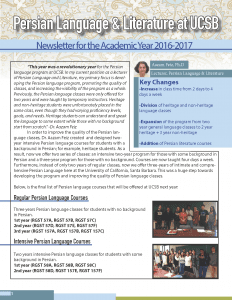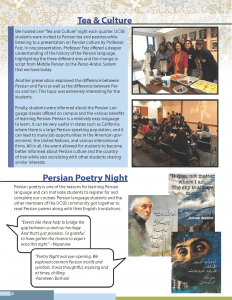The Department of Religious Studies at the University of California, Santa Barbara stands in support of the protests for racial justice and police reform. Black lives matter.
We commonly hear that “The death of one man is a tragedy. The death of millions is a statistic.” This sentiment echoes in the national response to the current health crisis, where thousands and thousands have died and continue to die daily.
Our expertise lies in the academic study of the world’s religions. Each emphasizes the sanctity of life. In Jewish, Christian, and Islamic traditions, human life is holy because God is holy (Lev 19:4; Qur’an 5:32, 6:131; 1 Corinthians 3:16). In the Buddhist tradition, the first and foremost precept is the prohibition against taking life (any life, not only human); at the same time, the human condition is unique and precious because Buddhas can only appear in human form. In religious traditions of the African Diaspora, Black gods and ancestors rise up to defend Black and Latinx lives in historical rebellions and revolutions. The most well-known of these is the Haitian Revolution that began with the invocation Vodou deities in 1791 at Bwa Kayiman.
Racially motivated killings are often processed as a statistic, notwithstanding the well-known killings of Trayvon Martin, Michael Brown, Eric Garner, Freddie Gray, Sandra Bland, Breonna Taylor, Tony McDade, and Ahmaud Arbery, among many others. In the violent taking of George Floyd’s life, witnessed by the world, we have not a statistic but a tragedy. It is both a reminder of the anti-Blackness embedded in our society and an example of the systemic institutional brutality directed towards minoritized communities.
In the Department of Religious Studies at the University of California, Santa Barbara we all share a strong commitment to an open, inclusive, and multi-cultural society, in which differences and diversity enrich all, and people of all backgrounds can fully develop their talents. Endemic social and political problems—including white supremacy—can only be addressed with clear vision, deep understanding of multifaceted problematics, and strong strategic vision. These are things that we strive to promote among our students and in what we do as a department.
The current and almost unprecedented concurrence of climate emergency, pandemic, and social protests is clearly signaling the importance of community organization, activism, and advocacy, and the importance of local and decentralized shared governance.
At this time of profound trauma, we wish to express our solidarity with those targeted, yet again, by intolerance, hatred, and violence. We fully support and applaud all protesters who demand justice and accountability. They have revived our sense of human sanctity and the transformative potential of public social action.
June 7, 2020















